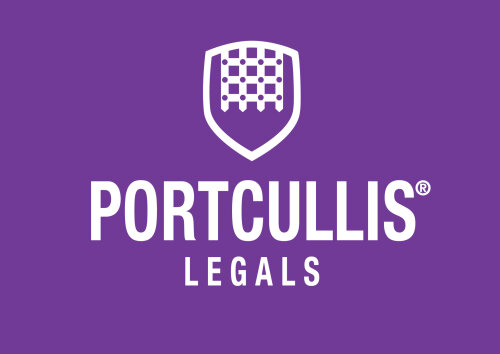Best Probate Lawyers in Plymouth
Share your needs with us, get contacted by law firms.
Free. Takes 2 min.
List of the best lawyers in Plymouth, United Kingdom
About Probate Law in Plymouth, United Kingdom
Probate is the legal process for dealing with the estate of someone who has died. It includes validating the will, identifying the deceased’s assets, paying off any debts, and distributing inheritance to beneficiaries. In Plymouth, United Kingdom, probate follows the laws and procedures set out in England and Wales, but local circumstances and court practices can occasionally influence the process. If you are an executor of a will or a close family member, understanding how probate works is crucial to ensure the deceased’s wishes are followed and the estate is administered lawfully.
Why You May Need a Lawyer
While some probate cases can be straightforward, many people find legal assistance helpful or even essential. Here are common situations where a probate lawyer may be needed:
- The deceased owned property or assets in Plymouth or elsewhere in the UK. - There are disputes among beneficiaries or claims against the estate. - The estate is large, complex, or involves business interests. - Questions arise about the validity of the will. - The estate includes foreign assets. - The estate is liable to pay inheritance tax. - There is no will (the person died intestate). - Significant debts or liabilities are present. A lawyer can provide advice, prepare necessary documents, liaise with the courts, and help prevent costly mistakes or delays.
Local Laws Overview
Probate in Plymouth operates under the broader framework of English and Welsh law. Some key aspects relevant to the local area include:
- Probate applications are typically handled by the Probate Registry, which covers Plymouth and surrounding areas. - If the deceased lived in Plymouth, their primary residence determines which local courts or probate registry will oversee the case. - Intestacy rules apply when there is no valid will, with the estate distributed according to set legal rules prioritising close relatives. - Local authorities, banks, and building societies in Plymouth may have their own procedures for releasing funds to an appointed executor or administrator. - Inheritance Tax may be due on estates above the national threshold, and local property values can influence liability. - Any local debts, such as council tax or utility bills, must also be settled as part of the probate process. Understanding these local considerations can help executors and family members manage the process more efficiently.
Frequently Asked Questions
What is probate and when is it required in Plymouth?
Probate is the process of proving that a deceased person’s will is valid and giving authority to executors to manage the estate. It is required when the deceased owned assets in their sole name or property, or if banks, building societies, or other institutions request it.
If there is no will, what happens?
If someone dies without a will, their estate is distributed under the Rules of Intestacy. A close relative may need to apply for ‘letters of administration’ to manage the estate. The law sets out who inherits and in what proportions.
How long does the probate process take in Plymouth?
This can vary, but straightforward estates usually take 6 to 12 months to conclude. Complicated estates, disputes, or tax issues can make the process longer.
Do I always need a probate solicitor?
It is not legally required to use a solicitor, but many people seek legal help when the estate is large, complex, contentious, or if they are unsure about the process.
What documents do I need to begin probate?
Typically, you will need the original will (if there is one), death certificate, details of the deceased’s assets and liabilities, and identification for the person applying for probate.
Can disputes over a will be resolved locally?
Yes, disagreements among beneficiaries or with executors can often be resolved through local mediation or, if necessary, in courts covering Plymouth and the surrounding region.
What taxes might the estate need to pay?
The estate may be subject to Inheritance Tax if its value exceeds the threshold set by HM Revenue and Customs. Other taxes may include outstanding income tax or capital gains tax on assets.
Are jointly owned assets part of the probate estate?
Assets owned jointly with another person generally pass automatically to the surviving co-owner and do not form part of the estate for probate purposes.
Where do I apply for probate in Plymouth?
Probate applications are usually made online or via the local Probate Registry, which handles cases from the Plymouth area. You may need to deal with the Principal Registry or a probate registry covering your county.
How much does probate cost?
There are application fees for probate, and if you use a solicitor, there will be professional charges. Fees may vary based on the value and complexity of the estate, and whether there are any disputes or inheritance tax issues.
Additional Resources
If you need further information or support, several organizations and agencies can help:
- Her Majesty’s Courts and Tribunals Service (HMCTS): Oversees the probate application process and manages probate registries. - Citizens Advice Plymouth: Offers guidance on legal and financial matters relating to probate. - HM Revenue and Customs (HMRC): Provides advice on inheritance tax and taxable estates. - Local Solicitors in Plymouth: Law firms specializing in wills, probate, and estate administration. - The Law Society: Find accredited probate solicitors for professional assistance. These resources can help you get started and provide reliable information tailored to your situation.
Next Steps
If you require help with probate in Plymouth, consider the following steps:
1. Gather all relevant documents including the death certificate, will, and asset information. 2. Make a list of all assets and liabilities linked to the estate. 3. Seek initial guidance from local Citizens Advice or the HMCTS. 4. If the estate appears complex or contentious, contact a qualified probate solicitor based in Plymouth. 5. Prepare to apply for probate through the online service or the local probate registry. 6. Maintain clear records of all correspondence and decisions. If you are unsure at any step, do not hesitate to seek professional legal advice to ensure the process runs smoothly and all legal obligations are met.
Lawzana helps you find the best lawyers and law firms in Plymouth through a curated and pre-screened list of qualified legal professionals. Our platform offers rankings and detailed profiles of attorneys and law firms, allowing you to compare based on practice areas, including Probate, experience, and client feedback.
Each profile includes a description of the firm's areas of practice, client reviews, team members and partners, year of establishment, spoken languages, office locations, contact information, social media presence, and any published articles or resources. Most firms on our platform speak English and are experienced in both local and international legal matters.
Get a quote from top-rated law firms in Plymouth, United Kingdom — quickly, securely, and without unnecessary hassle.
Disclaimer:
The information provided on this page is for general informational purposes only and does not constitute legal advice. While we strive to ensure the accuracy and relevance of the content, legal information may change over time, and interpretations of the law can vary. You should always consult with a qualified legal professional for advice specific to your situation.
We disclaim all liability for actions taken or not taken based on the content of this page. If you believe any information is incorrect or outdated, please contact us, and we will review and update it where appropriate.









